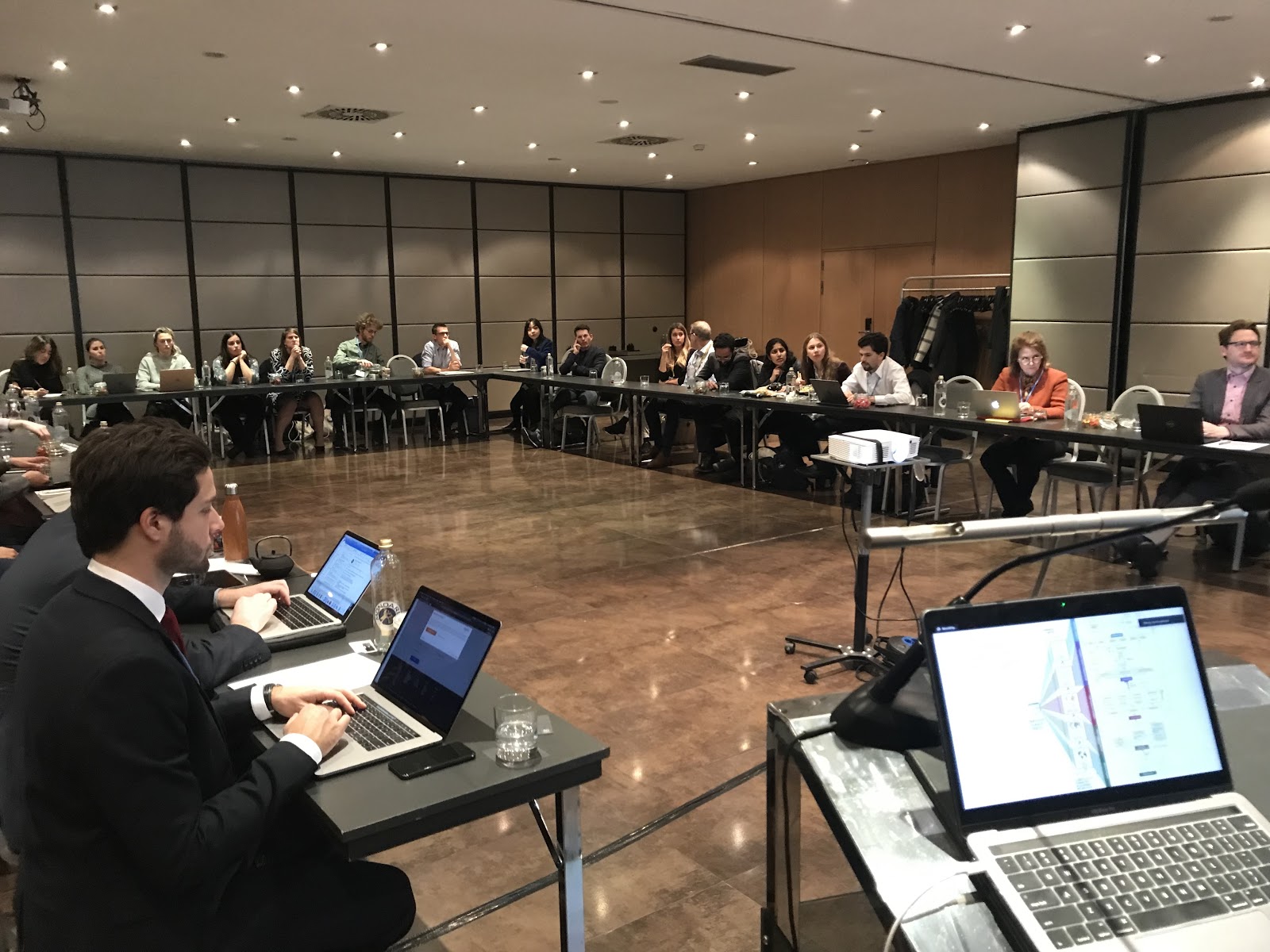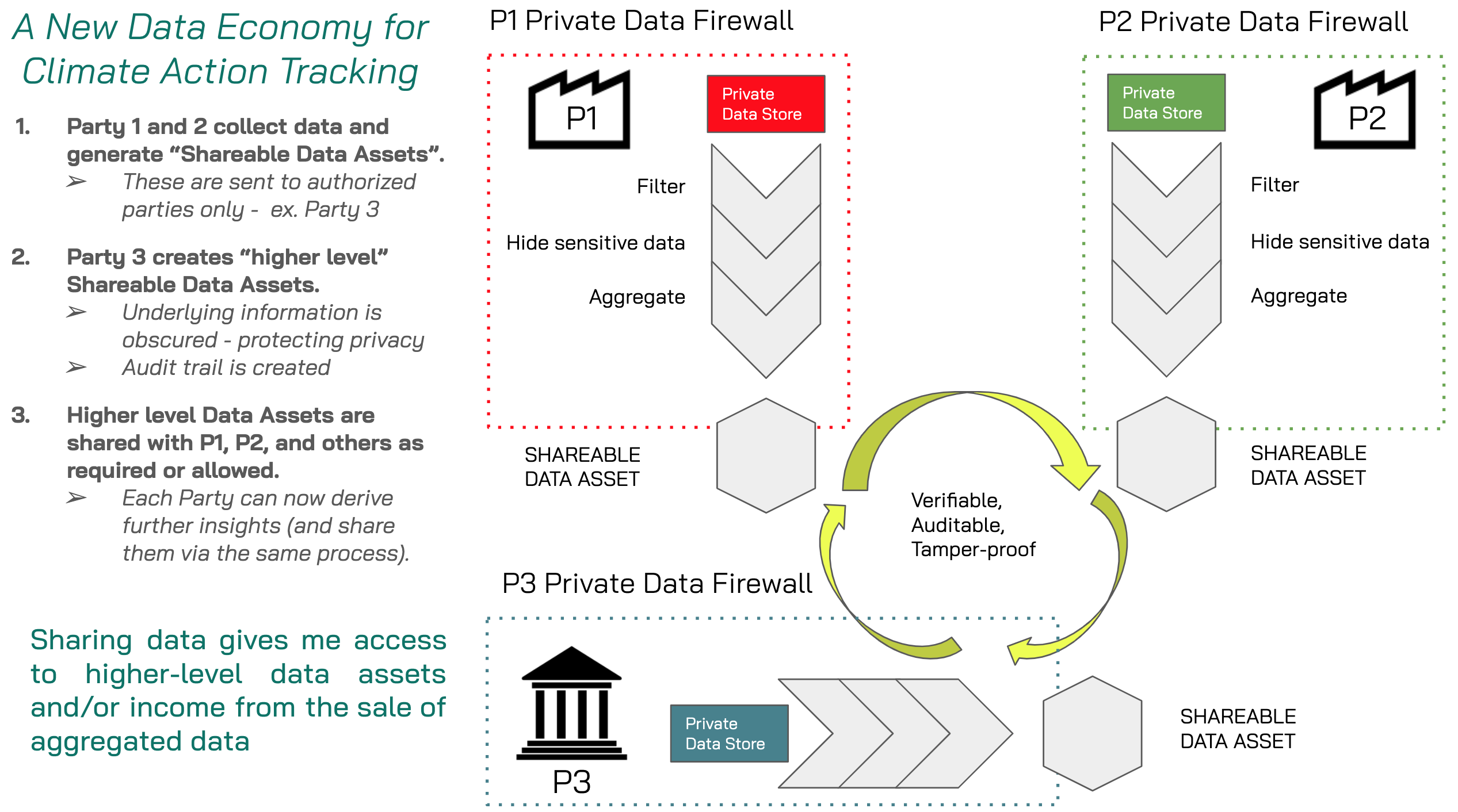
The planet needs radical collaboration now more than ever. Image by Yale OpenLab.
On the sidelines of the latest United Nations climate negotiations in Madrid (COP-25), the Data-Driven Lab in partnership with the Yale OpenLab and the Climate Chain Coalition held an event, “Radical Collaboration: Digital Solutions for Tracking Climate Action.” More than 40 stakeholders representing the digital technology, climate policy, and research communities came together to discuss how technology can be applied to monitor and evaluate progress towards global climate goals. The workshop also featured the Open Climate Collabathon, the first open source, global collaboration to develop solutions to climate change.
Angel Hsu, Data-Driven Lab Director, and Martin Wainstein, Yale OpenLab Director, opened the session by introducing the aim of the workshop and the Open Climate Collabathon. Stressing the urgency of the climate challenge and the limited time to reach global goals, Hsu discussed the potential for digital technology to scale the pace of solutions required. Wainstein, presenting remotely, then introduced the Open Climate Collabathon, which, in its first iteration, involved eight global “nodes” or hosts that brought together more than 350 participants to tackle one of 21 “prompts” that outlined different challenges related to climate change tracking and assessment.

Participants gather at the AC Hotel Marriott Feria in Madrid to learn about new tech solutions for climate action tracking. Photo by Data-Driven Lab.
Hsu then introduced one of the solutions that arose from the Collabathon, which garnered the “Most Innovative Award” from a third-panel of judges, focused on the challenge of engaging cities, regions, and businesses in sharing needed climate data to assess their contributions to global climate mitigation. Ying Tong Lai, a Yale-NUS College ‘18 graduate who currently works at the Ethereum Foundation, virtually presented a solution to incentivize accurate reporting of climate data and participation. Loic Guichuaoa from HEC Paris followed with a complementary presentation on Data-Sharing Economies, which addresses privacy concerns some actors might have when contributing data to a distributed ledger.

The winning solution by the Singapore team combines homomorphic encryption, NLP, and blockchain to incentivize data reporting and verification. Diagram by Ying Tong Lai.
The workshop also featured presentations from a policy perspective and how digital solutions could enhance existing efforts to showcase and track the multitude of city, region, and company climate actions. Ian Tout from the UNFCCC introduced the Global Climate Action Portal, an online platform featuring 17,284 actors taking more than 25,000 actions. Tout highlighted events that took place at the COP-25 negotiations in Madrid that focused on the need for better data tracking and assessing the performance of these climate actions (See “Global analytic community commits to support climate action tracking, with DDL support”).

A new data economy, envisioned by the team from HEC Paris, aims to assetize data and make it worthwhile for actors to accurately report their CO2 emissions. Diagram by Loic Guichuaoa.
Other presentations were also made by Tom Baumann and Miroslav Polzer of the Climate Chain Coalition, Neo Lin, Co-founder and CEO of Synergy Inc., and Santiago Siri from Democracy Earth. Their presentations primarily focused on blockchain-based applications related to climate change. Synergy’s ECO2 platform claims to be the “first blockchain solution for fighting global warming,” by establishing a personal cryptocurrency for climate trading. Democracy Earth is developing blockchain-based protocols for decentralized autonomous organizations (DAOs), which refer to a set of smart contracts designed to automate organizational governance and decision-making. For a larger discussion of blockchain’s applications to climate change accounting, see this series of posts on Medium (“Radical Collaboration and Blockchain for Climate Accounting”), a joint effort by DDL and Yale OpenLab).

Santiago Siri from Democracy Earth explains the potential of Decentralized Autonomous Organizations (DAOs) to power climate action. Photo by Data-Driven Lab.
This workshop represented a first meeting of minds to bring together diverse communities that are only beginning to speak to explore the ways in which radical collaboration could bring benefits for the climate. The Open Climate Collabathon is planning to host its next event in April. The Data-Driven Lab team is continuing to work with the Singapore node participants to flesh out an options paper that will explore the team’s proposed solution in more depth, as part of a National Science Foundation funded project.

Recent Comments